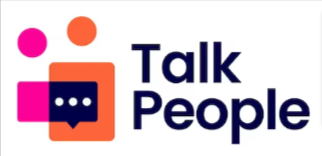The topic of Social Media Regulation: Balancing Freedom of Speech and Misinformation echoes around the world, rousing debates focusing on the fine balance between preserving freedom of expression and curbing harmful online speech.
Delving into the U.S and EU Strategy for Social Media Regulation
The United States poses unique challenges to regulating social media, largely attributed to its strong constitutional guarantee of free speech under the first amendment. There has been an increasing public demand for regulating social media platforms to reduce the spread of fake news and misinformation. However, critics view any form of regulation as a potential threat to the marketplace of ideas and free expression on social media. Noteworthy, not all speech on social media is protected under the First Amendment; Supreme Court rulings have held that obscenity and incitement to violence are not shielded, and the same applies to speech that is false or misleading.
Assessing the Impediments of First Amendment towards Social Media Regulation
Issues of the first amendment often arise when discussing the regulation of speech on social media platforms. This is largely due to the overly broad interpretation of the amendment by the Supreme Court, undermining the efforts of social media companies to effectively moderate content. Retaining the essence of freedom of speech while mitigating the harm from false and misleading information constitutes a delicate balancing act.
Examining the Role of Government in Social Media Content Moderation
The role of government in content moderation is limited, with moderation policies mainly crafted and executed by social media platforms. However, critics argue that the government needs to be more involved, particularly with more significant issues like hate speech and public health misinformation. Some suggest the government should advocate for greater transparency in decision making processes related to content moderation.
The Presumption Against Public Regulation of Social Media: An Analysis
The anti-regulation argument posits that public regulation of social media could stifle free speech and the marketplace of ideas. Critics regard that the government interference could lead to a slippery slope of censorship and could potentially violate first amendment rights. The issue of regulating social, however, is not black and white. Both public and private sectors have roles to play in mitigating the challenges posed by social media to public discourse.
Unpacking the Anti-Monopoly Argument Against Social Media Regulations
Critics of social media regulation also use an anti-monopoly argument. Social media platforms have been accused of having too much power over the information flow on their platforms. Critics argue that regulations would only serve to increase the power these platforms already hold, which could potentially limit free expression and the exchange of ideas.
Democracy, Deliberation, and Moderation on Social Media Platforms
The democratic process relies heavily on the deliberation of ideas and freedom of speech. Social media platforms, though originally intended to facilitate public debate and information sharing, have become catalysts for hate speech and misinformation. To mitigate this, platforms should aim to foster a safe environment for exchange and discussion of ideas, while ensuring that the content moderation practices employed do not infringe on the users’ right to free speech.

The National Security Implications of Social Media Regulation
Regulations limiting hate speech and false information are crucial in maintaining public order and national security. Social media regulations should strive not to infrive on free speech rights while also preventing dangerous misinformation from causing public panic or inciting violence.
A Private Sector Perspective on Social Media Regulations
From a private sector perspective, social media regulations could limit the ability of social media companies to grow and innovate. However, social media companies also have a responsibility to ensure that their platforms do not become breeding grounds for false information and hate speech. Companies should carefully consider the impact of their content moderation policies on users’ freedom of speech.
An Examination of Harms Caused by Speech and Social Media
False information and hate speech on social media have the potential to cause real harm in the real world. Online hate speech can convert into offline aggression, thus endangering public safety. Furthermore, the transfer of false or misleading information via social media can affect public opinion, skewing the public debate and infringing upon the public’s right to accurate information.
Conclusions: Looking Ahead at the Future of Social Media Regulations
There is no denying the urgent need to address the issues presented by social media platforms. These challenges include the spread of fake news, promotion of hate speech, and impact on public health. With the aim of balancing free speech and the need for regulation, innovative and flexible solutions are required. Both government regulation and self-regulation among social media companies must work in tandem to create an Online world that replicates the freedom and safety we strive for in our physical one.




